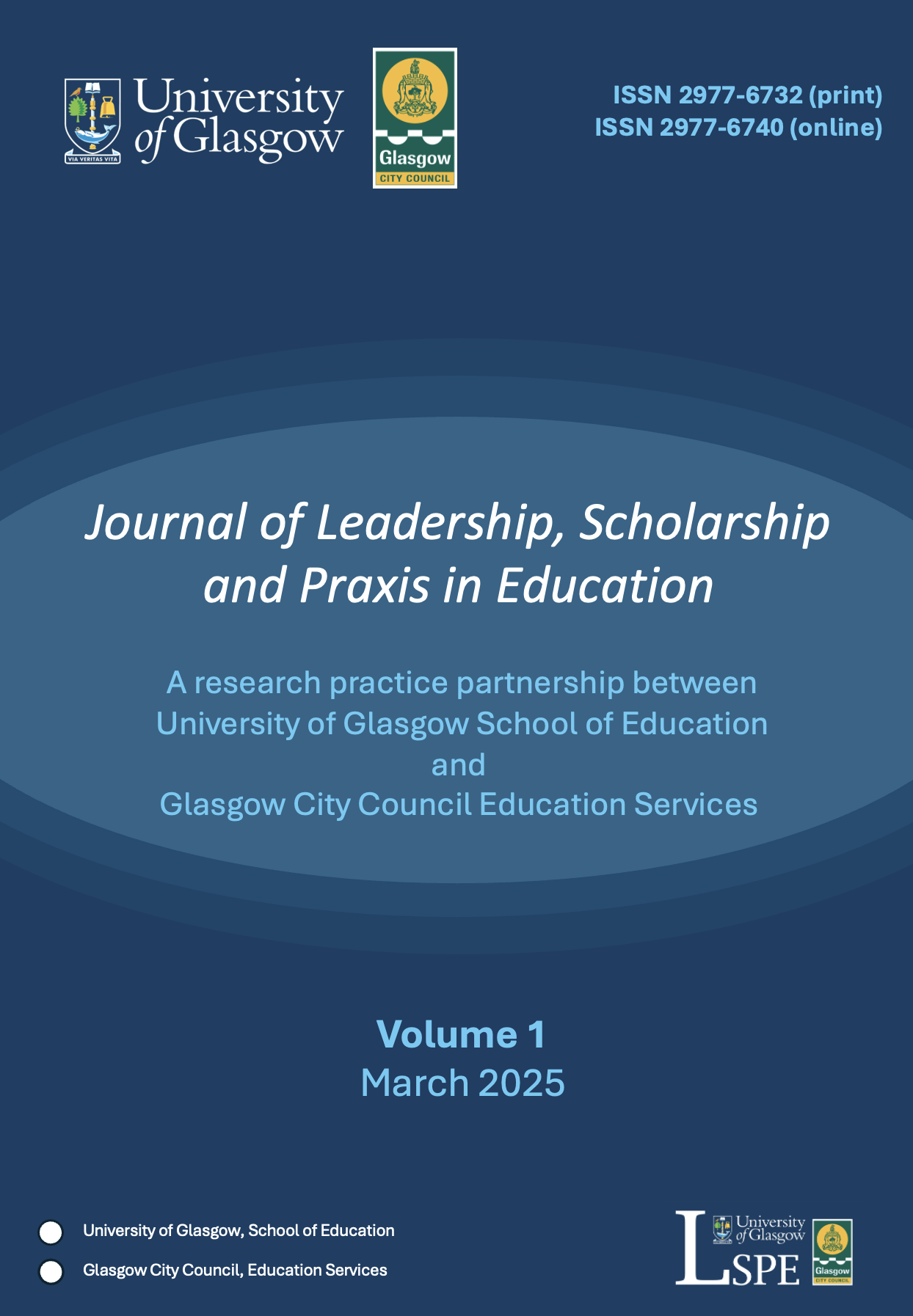Collaboration to Support the Development of Inclusion: Reflections on a Strategic Change Initiative
DOI:
https://doi.org/10.36399/612t5p25Keywords:
inclusion, strategic change initiative (SCI), practitioner collaboration, co-located provisionAbstract
Including all children in education is one of the biggest challenges facing global systems (Ainscow, 2023). This paper presents research findings of a strategic change initiative (SCI) that both recognises and addresses the challenges of the inclusion of children with additional support needs (ASN) within the Scottish educational context. In Scotland, pupils learn in both mainstream and specialist provisions. Scottish Government (2023a) data shows year on year trends that more children and young people are being identified with ASN. In the local authority (LA) context presented, data analysis indicates rising referrals and requests from mainstream to specialist provision for pupils with ASN, stressing the challenges of including these learners in mainstream and the dilemmatic nature of placement in learning. Furthermore, recent financial restraints on education budgets in Scotland (The Scotsman, 2024) create further challenges for the inclusion of pupils, as reported by the Educational Institute for Scotland (EIS, 2019)
This study examines the first year of a three-year SCI led by a depute head teacher (researcher) at a Scottish mainstream primary school with a co-located additional learning needs provision. The paper outlines how, in the first year of the SCI, within-school collaboration has enhanced ASN learner inclusion across school settings. Evidence demonstrates that strategic leadership (Johnson, 2013; Quong & Walker, 2010) and practitioner collaboration (Ainscow, 2023; Hargreaves & O’Conner, 2018) have positively impacted learner inclusion and the development of inclusive teaching practices. In the second year, within-school collaboration will continue with an advancement towards between-school collaboration. The objective to fully embed both collaboration models will be achieved in the third year.
The findings suggest that the SCI model is both financially viable and scalable and provides school leaders with a framework that can be replicated locally to address current challenges to inclusion in educational settings.





